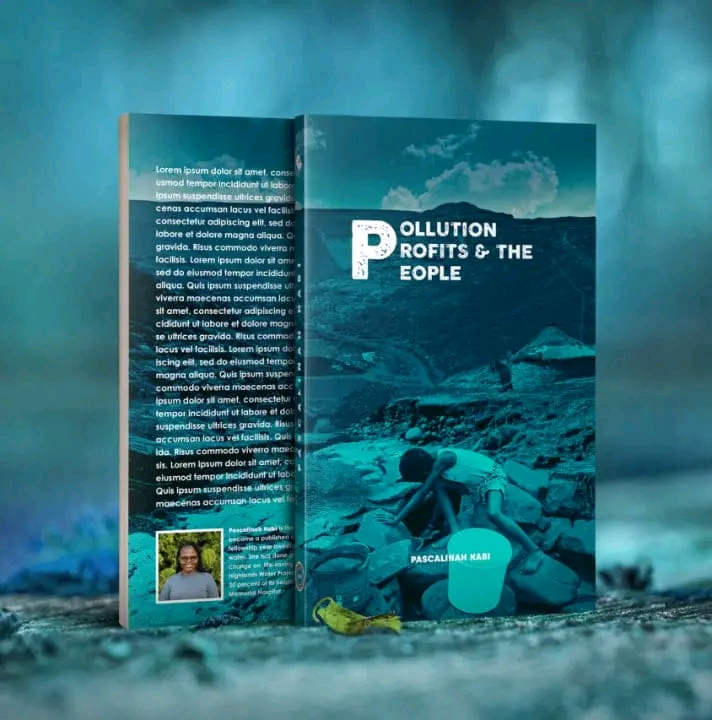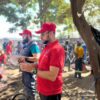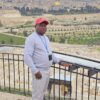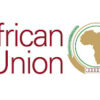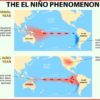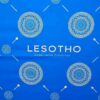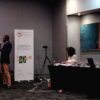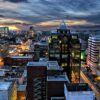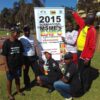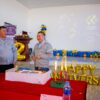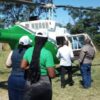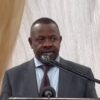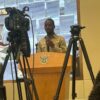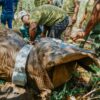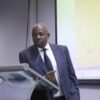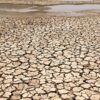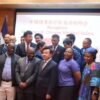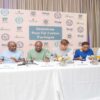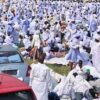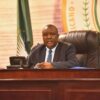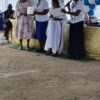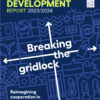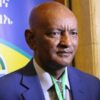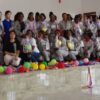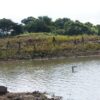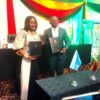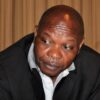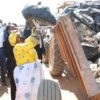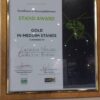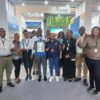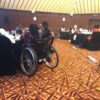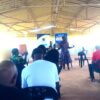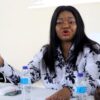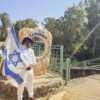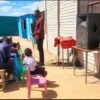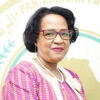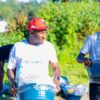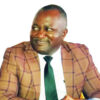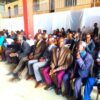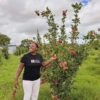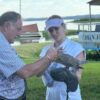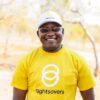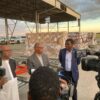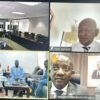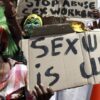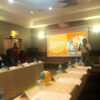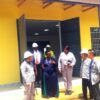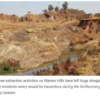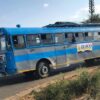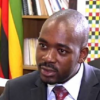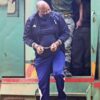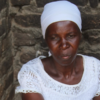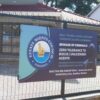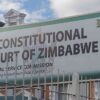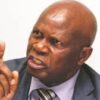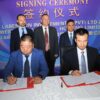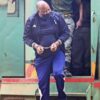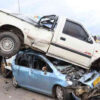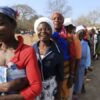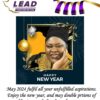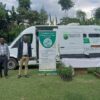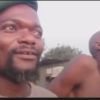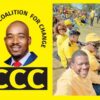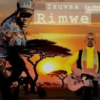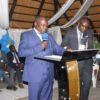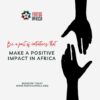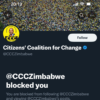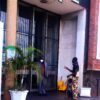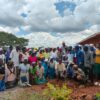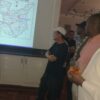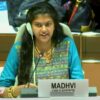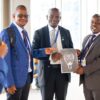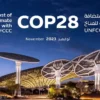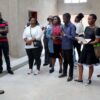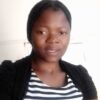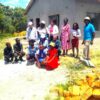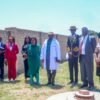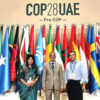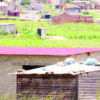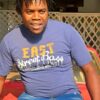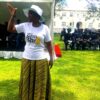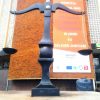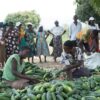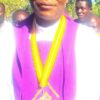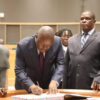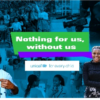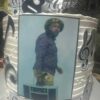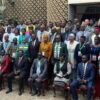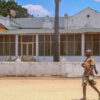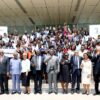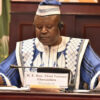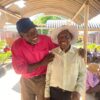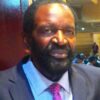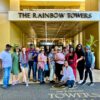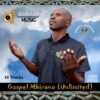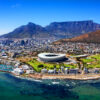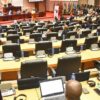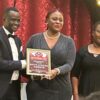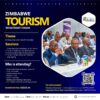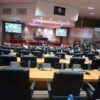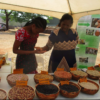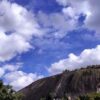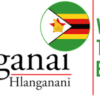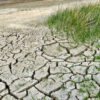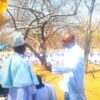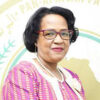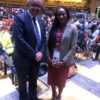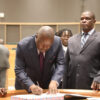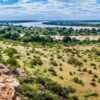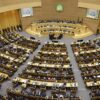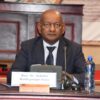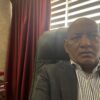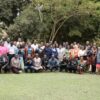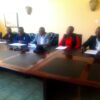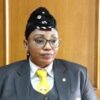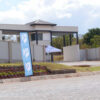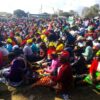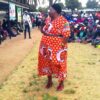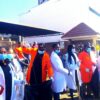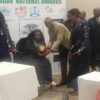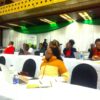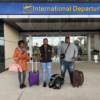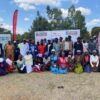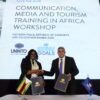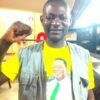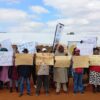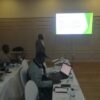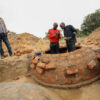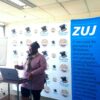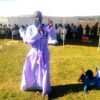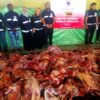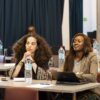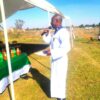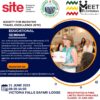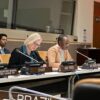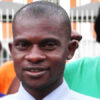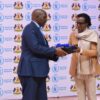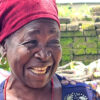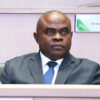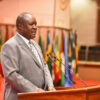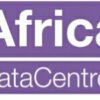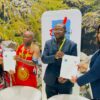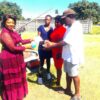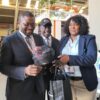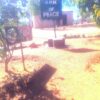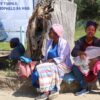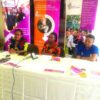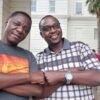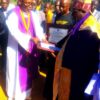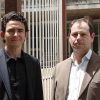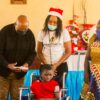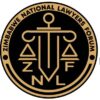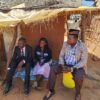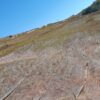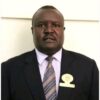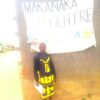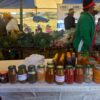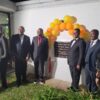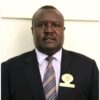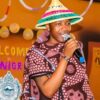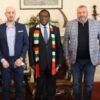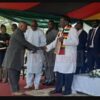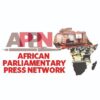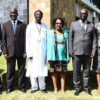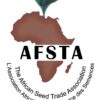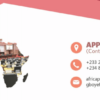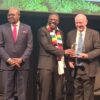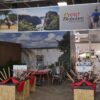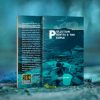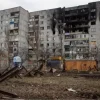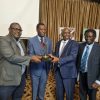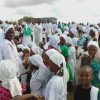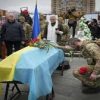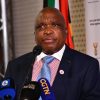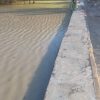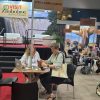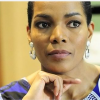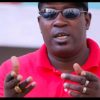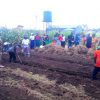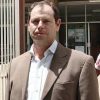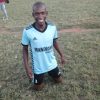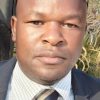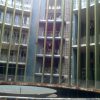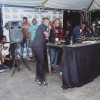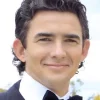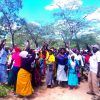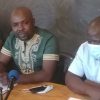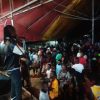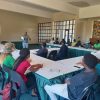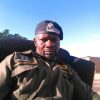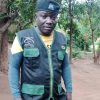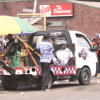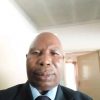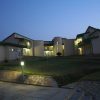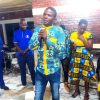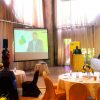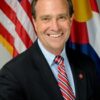Liapeng Raliengoane
LESOTHO – Pascalinah Kabi, recently made history in Lesotho by launching a book on water pollution dubbed Pollution, Profits and the People, making her the first Lesotho female Investigative Journalist to publish a book.
According to the Natural Resources Defense Council (NRDC) January 2023 report on water pollution, the widespread problem of water pollution is jeopardizing our health, drinkable water sources are finite: less than 1% of the earth’s freshwater is actually accessible to us, without action, the challenges will only increase by 2025, when global demand for freshwater is expected to be one-third greater than it is now.
Spotlight Global News Correspondent based in Maseru Lesotho had an interview with the outstanding Author and Investigative Journalist, Pascalinah Kabi.
Spotlight Global News: Who is Pascalinah Kabi? Where is she from? How is her family and work background?
Pascalinah Kabi: (Laughs warmly and smiles) Pascalinah Kabi is Lesotho’s female investigative journalist who recently published a book. I would like to believe that I am an inquisitive human being, born and raised at Ha Paki, Mazenod, Lesotho, by my late parents, ‘Makopano Jacenta Kabi and Molupe Johannes Kabi. I am a mother of Paballo Juliet Kabi, she keeps me on my toes.

I have a strong willing personality largely because I have had to step in and protect myself and younger siblings quite early in my life. You see, when a mother is incapacitated by ill health to protect her children, everyone will try every trick in the book to prey on that family. It did not help that my father spent almost all his life in the South African mines.
“My siblings and I were identified by villagers and most relatives as children of a “madwoman”
My siblings and I were identified by villagers and most relatives as children of a “madwoman” at every given opportunity. In fact, most of my relatives thought we would amount to nothing because we were being raised by a woman with mental health problems and quite early in my childhood, I pledged to defy all the odds and make my mother proud.
It is that discrimination which propelled me to work hard enough for people to call me by my name, not a madwoman’s child. I am forever grateful to God for giving me strength and wisdom to look beyond that temporary situation in my life because, today I am Pascalinah Kabi, a daughter of ‘M’e ‘Makopano and Ntate Kabi.
Somehow this also had a serious bearing on our education because I had to repeat Standard 7 at Mazenod Primary School because there was no money to pay my secondary school fees. I only enrolled for Form A in 1998 after my late sister, Mahali Kabi started working at Masianokeng High School as a teacher and arranged to pay for my fees.
In April 1999, ausi Mahali was raped and mercilessly killed. Again, I had no one to pay my school fees. Her killer (s) were never arrested and hers is a cold case. I played netball at Masianokeng High School and I was one of the promising players when my sister passed on. That is how I got to stay in class the whole of 1999.
I was also a member of the Student Christian Movement in Lesotho – a non-denominational movement that spiritually prepares students for live challenges. I found refuge in SCM and within a short time, I had become a valuable member. SCM and its then chairperson, Ntate Tšeliso Tšoeu ensured that my school fees were taken care of.
I believe I am one of the success stories of the movement because I graduated with Diploma in Journalism, Media and Communication after SCM nominated me for the World Council of Churches scholarship.
I started my career at the Lesotho Times Newspaper as a rookie in 2008, writing sports and entertainment articles. I left the publication in 2012, briefly camped at Public Eye Newspaper and later returned to the Lesotho Times and Sunday Express Newspapers in 2015, this time around to launch my career as an investigative journalist.
I left the publication end of 2021 after Bertha Foundation awarded me a year-old fellowship to investigate and publish exposés on water related issues in Lesotho. As part of my Bertha Challenge fellowship, I wrote and published a book called Pollution, Profits and the People. The book is sold M400 hard copy and a soft copy costs $21.82.
I have been awarded reporting grants by Africa-China Reporting Project, Centre for Collaborative Journalism, Internews’ Earth Journalism Network and Pulitzer Centre. I am currently working as a freelance investigative journalist with keen interests in environment, health, gender and politics.
Spotlight Global News: Congratulations on publishing your first book: Pollution, Profits and the People. What it is about? How did it come about? Who should read it?
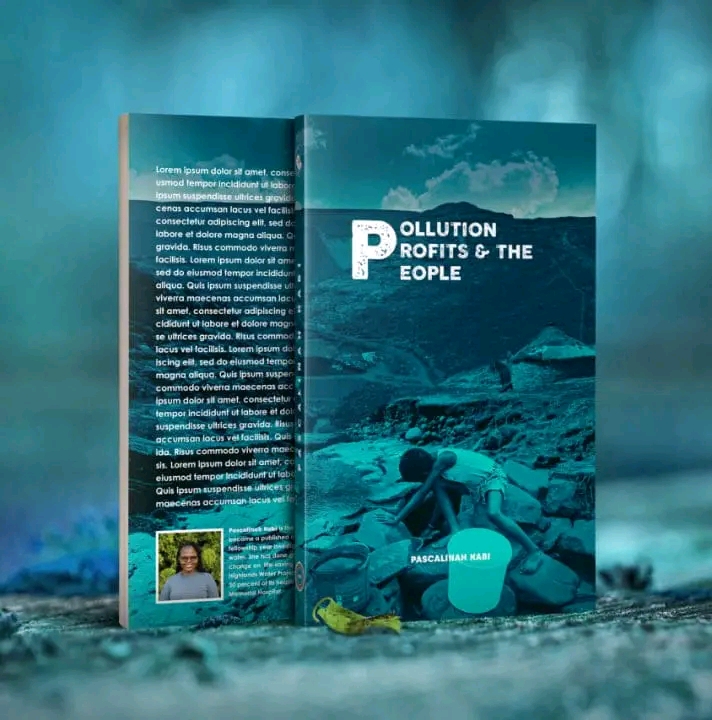
Pascalinah Kabi: Thank you very much ‘M’e (a Sesotho word respectfully referring to a female) Pollution, Profits and the People is a provocative book that exposes almost everything that has gone bad with the management of water resources in Lesotho, from the impacts of the Lesotho Highlands Water Project on host and relocated communities and the country’s food security, to the disastrous effects of mining operations on water sources in the country.”
Despite being a giant in water courses, 80% of Lesotho’s rural population relies on unprotected water sources and among them are Patising and Maloraneng people in Mokhotlong, whose water sources are being polluted by the Letšeng Diamonds Mine. This issue is elaborately explored in the book.
Other ordinary citizens at the receiving end of mining pollution are those downstream the Storm Mountain Diamonds and Liqhobong Mine as per confidential evidence I have seen and used to compile Pollution, Profits and the People.
My upbringing largely influenced my decision to pursue a journalism career and my Bertha Challenge fellowship has helped me venture into social justice journalism. I love carefully weaving people’s personal stories in my investigations and in this book, I use accounts of individuals affected by the pollution and the Lesotho Highlands Water Project to drive the point home that, indeed Lesotho is in a serious water crisis that must be addressed urgently.
The target audience is every single stakeholder in the water sector – from ordinary citizens; journalists; human rights defenders; governments of Lesotho, South Africa, Botswana and Namibia; parliamentarians, mining companies to development partners and financial institutions.
This will help all of us, from our small corners to the national and regional level, to have honest discussions on water related issues and possibly agree on practical, sustainable solutions on water management in the Lesotho. Failure to do that will have a serious ramification on the four countries in the near future and we will only have ourselves to blame, no one else.
Challenges! Challenges!
Spotlight Global News: While gathering these water stories, what challenges did you encounter and how did you overcome them?
Pascalinah Kabi: The biggest challenge that I think affects all journalists is access to information. While this is a global challenge, I think countries like Lesotho are far worse when it comes to making information accessible to journalists. I overcame this challenge by using my investigative skills to access documents that helped me package Pollution, Profits and the People.
Writing an investigative book is quite a lonely journey ‘M’e, I have had to look over my shoulder many times. However, I relied on the solid support from my daughter Paballo Juliet Kabi, my partner Phetheho Ntlamelle, staff at MNN Centre for Investigative Journalism (MNNCIJ) and Bertha Foundation as well as family and friends.
I lost my dear younger sister, ‘Maitumeleng Letlatsa four months into this project (with teary eyes). She was my solid support system and losing her made the journey even more difficult because I have had to mother four children overnight. I thank God for strengthening me and lighting my path at my darkest hour. It is through her loss that I gained three beautiful babies – Itumeleng, Boitumelo and Bonolo Letlatsa.
Spotlight Global News: Sincere condolences. What was your most memorable encounter throughout this book writing journey?

Pascalinah Kabi: I was a total stranger when I visited people at Patising and Maloraneng in Mokhotlong, Ha Sheshile in Botha-Bothe, Ha ‘Nelese in Maseru and few other places across the country. Having people warmly welcome me and my colleagues at MNNCIJ in their homes and trusting me with their most painful experiences is one memory I will forever hold dear to my heart.
However, there were painful memories where twice during the research, two gentlemen commissioned to help me with their expertise in totally different locations and months, nearly lost their lives on the field.
Spotlight Global News: What biggest lesson have you learned from publishing a book?
Pascalinah Kabi: It is that the first secret towards success is believing in one’s self when no one else does. Do not to be easily dissuaded and always remember that you are enough.
Spotlight Global News: Where can people get the book? How can the international readers get it?
Pascalinah Kabi: Hard copy is available at MNN Centre for Investigative Journalism offices in Maseru, Readers can also access the book online on Amazon.
Spotlight Global News: Talk about breaking the class ceiling! You are the first Lesotho female Journalist to publish a book. How is the mood in Lesotho? How do you feel?
Pascalinah Kabi: I think I speak for almost all authors when I say the journey after publishing is way tougher because no one wants to publish a book that people would not read. I thank God that Pollution, Profits and the People is doing quite well in the market.
I am humbled by the enormous support I have received from each and everyone who has bought the book. So, in a very truncated manner, Pollution, Profits and the People is a breath of fresh air in the Lesotho media fraternity.
I thank my family and friends, management and staff of MNN Centre for Investigative Journalism, Bertha Foundation and its 2022 fellows, my sources and media colleagues for the support they gave me. I would not have done this without them.
Spotlight Global News: What is the best advice anyone has ever given you that has proven to be the pivotal tenet of your life?
Pascalinah Kabi: My late mother once said to me: “Now that you are employed, you must never ever look down on anyone, even a mentally sick person sitting by the way side because one day, your life will be in danger and he will be the only one who could save your life.” I strongly believe my mother, is one proud mother, wherever she is.
Spotlight Global News: You are one of the successful Journalists in Lesotho. To what do you attribute your success?
Pascalinah Kabi: The progress that I have made so far in my career is squarely attributable to three things – prayer, hard work and perseverance. I am one person who does not give up on the first, second or hundredth fall.
My tears dry as fast as they flow because I see all the slams on my face as motivation enough to keep knocking, change doors and knocking strategies until I get a yes. Positive answers rarely come by but if I can get one positive answer out of ten requests in a year, that is enough reason for me to keep knocking the following year.
For instance, I began applying for story grants some time in 2015 but only got my first big break in 2018. I received emails which read along these lines, “Dear Pascalinah, we regret to inform you that…” while some did not even inform me of their decisions.
Secondly, there is no room to give up where I come up. I have two eight hopeful eyes whose future depend on my perseverance.
“Journalism is a thankless job with meagre salaries and harsh working conditions.”
Spotlight Global News: What advice do you have for other journalists who look up to you? And those who have lost hope in journalism?
Pascalinah Kabi: What a tough question! (Laughs and sighs) I would have preferred to answer this one after winning a global media award but now that you have asked, let me attempt to answer it (laughs again).
Dear colleagues, journalism is a thankless job with meagre salaries and harsh working conditions. The only thing that eases the load is PASSION for this job. I honestly believe that passion, hard work and perseverance will help us get where we want as individuals. The journey is not for the faint hearted.
For those who have lost hope in journalism, I am sorry journalism was not kinder to you. I apologise that there was no media colleague or very few to hold your hand at your most challenging times. Please do us a big favour, pray for practising journalists to try by all means possible to practise ethical journalism. Basotho need a professional media sector.

